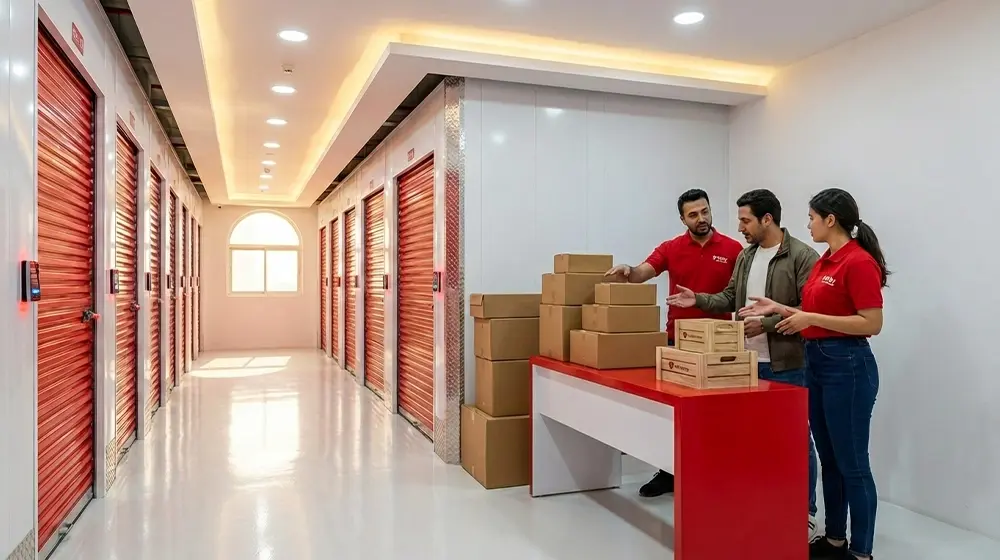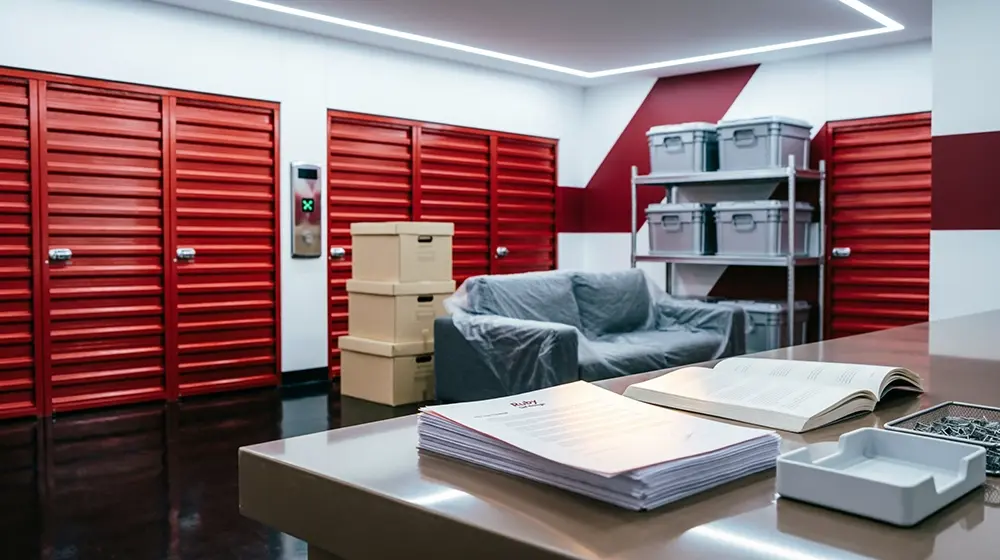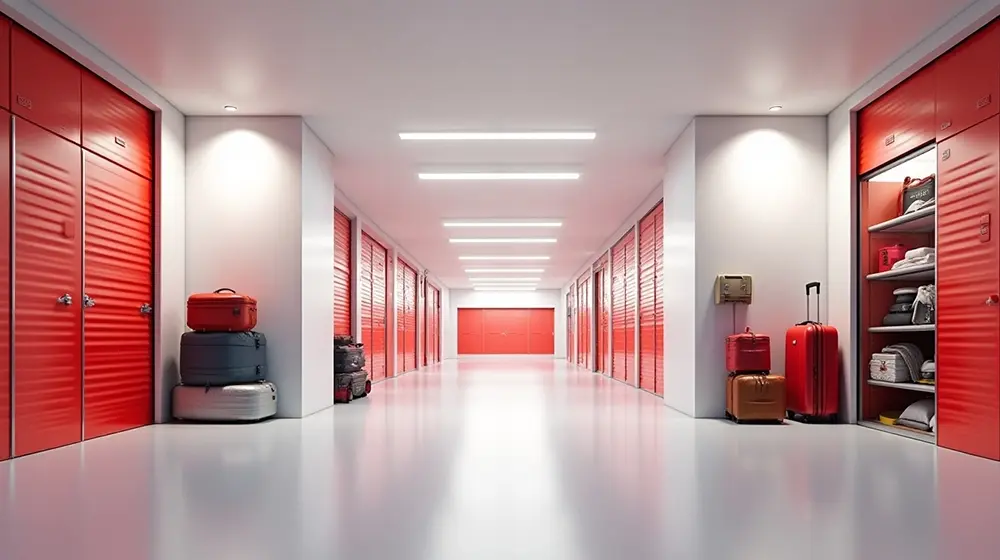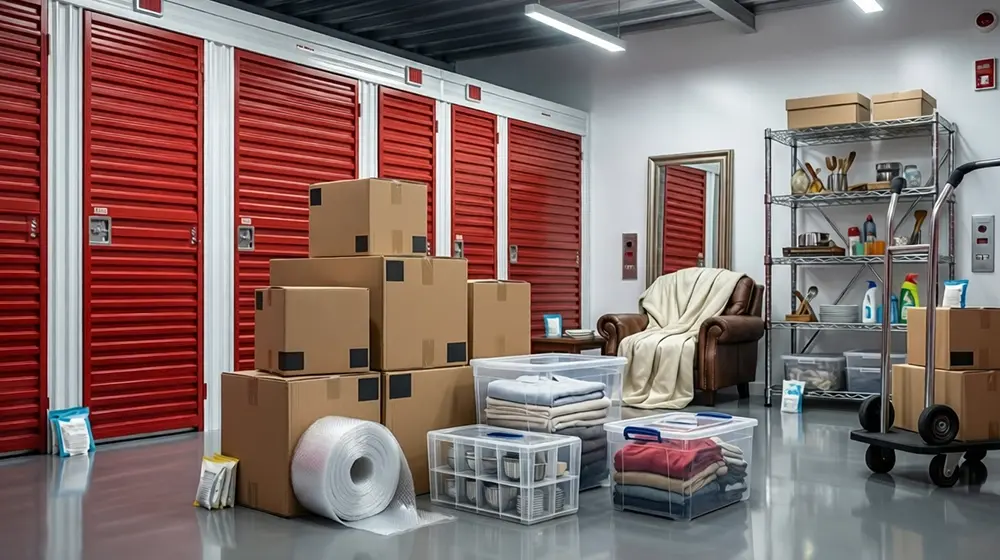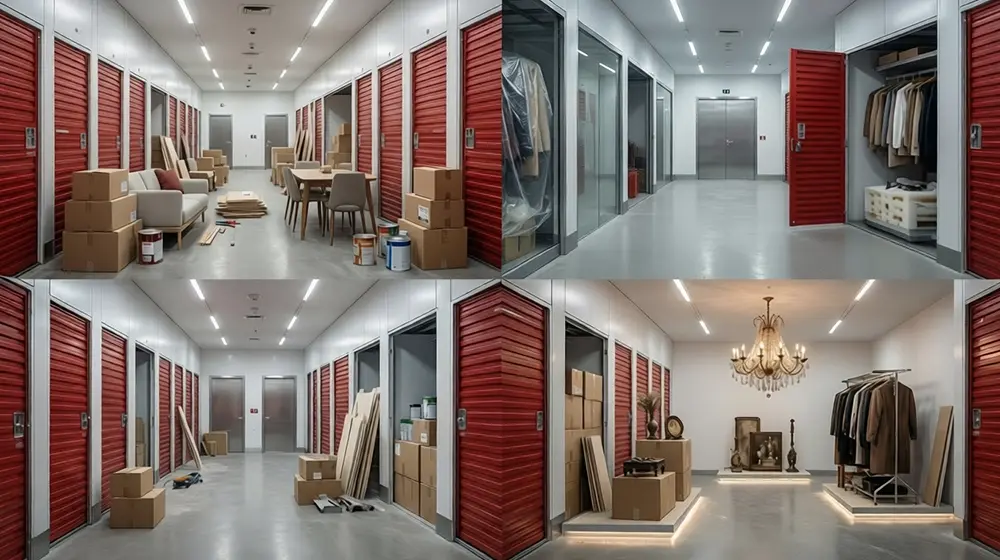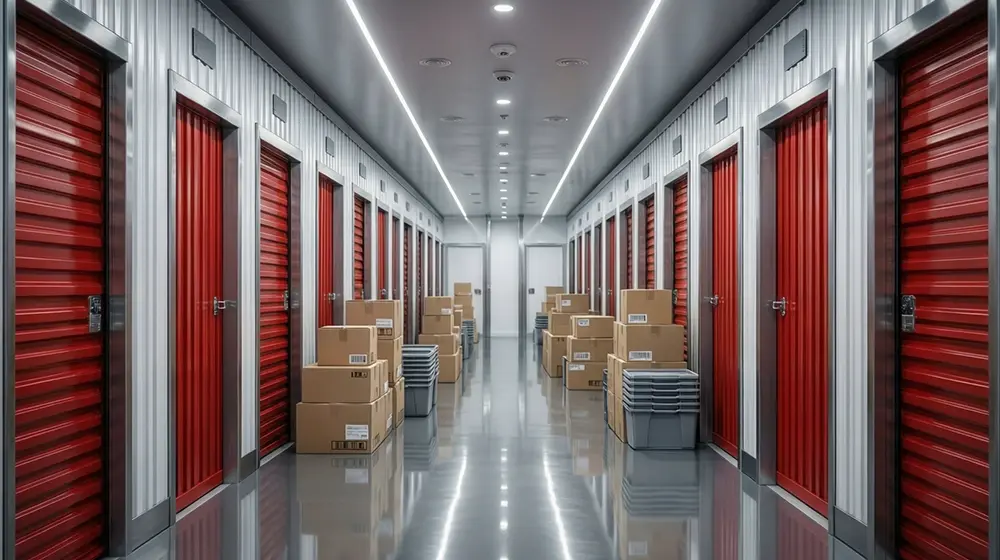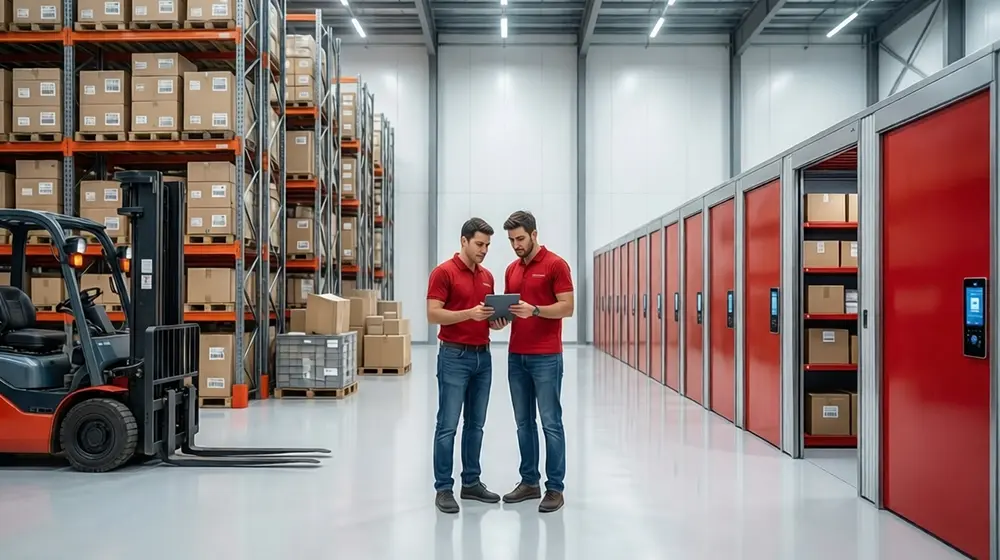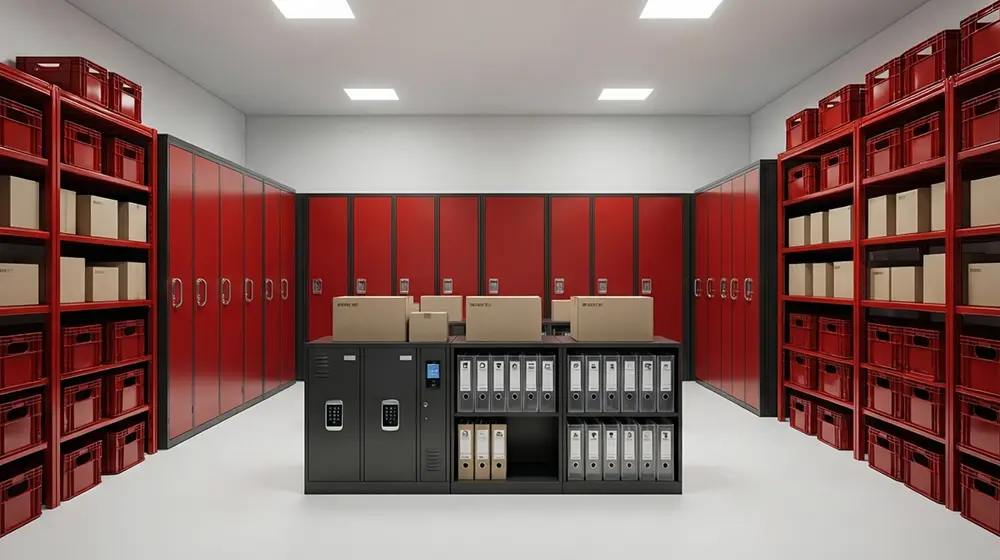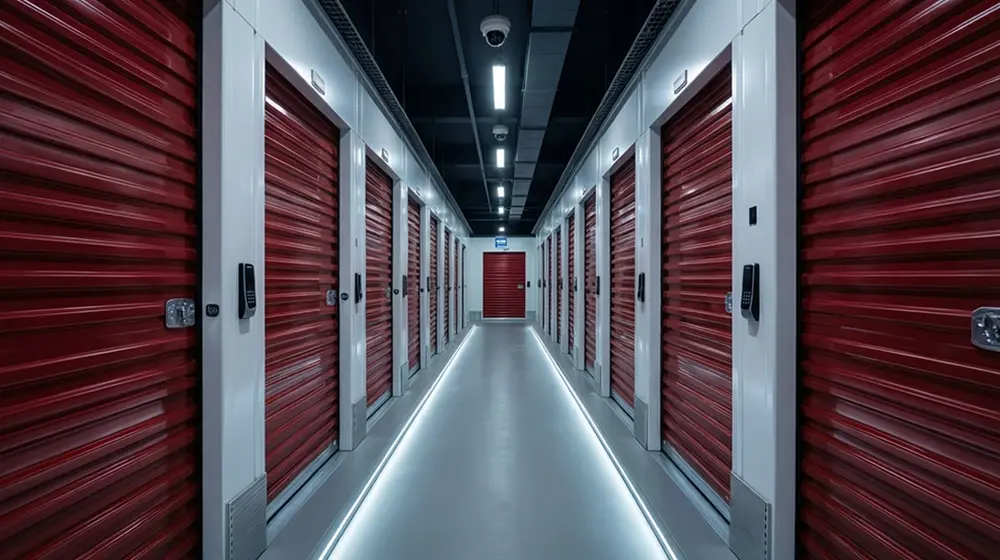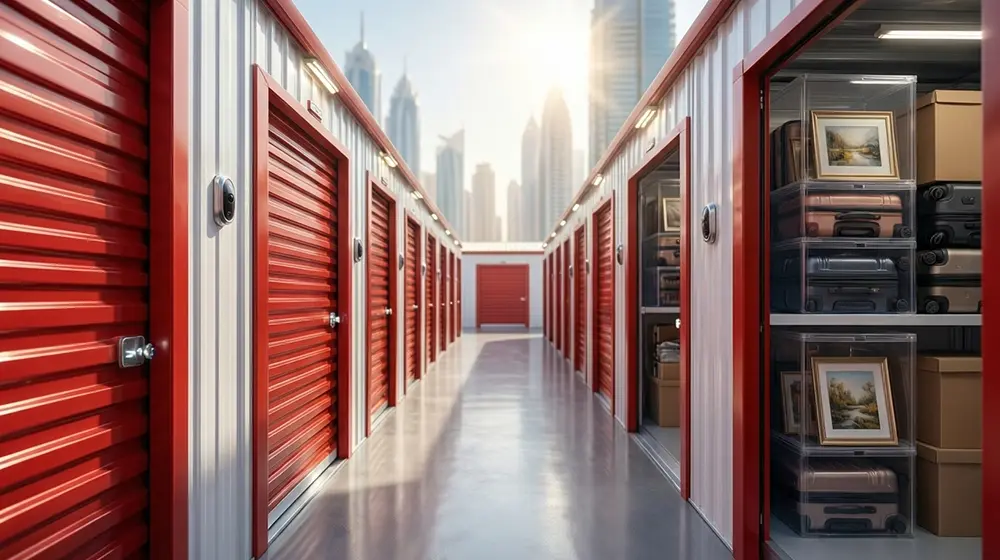Dubai is one of the fastest-growing cities in the world, built on international connectivity and a strong logistics backbone. For residents, travelers, and companies, local information in Dubai is more than just background knowledge; it is a critical resource for decision-making in daily life and business operations.
Understanding Dubai’s infrastructure helps different groups:
- Travelers use local info to navigate airports, find storage near Dubai International Airport (DXB) or Al Maktoum International Airport (DWC), and avoid excess baggage fees.
- Businesses rely on industrial estate data to locate suppliers, manage inventory overflow, and connect to self storage facilities near JAFZA or Al Quoz.
- Expat residents constitute approximately 88.50% of the population, while Emiratis make up around 11.50%. And use storage services during relocations and housing transitions.
Whether choosing self storage near Dubai airports for short-term needs or identifying warehouse space in industrial estates, accurate local info makes the process efficient and cost-effective.

Key reasons local info matters for self storage in Dubai
- Efficiency for travelers: People on layovers use self storage near DXB to explore the city without bags.
- Cost control for businesses: Firms in Dubai Industrial City or DIP identify nearby storage for inventory management, reducing rental overhead.
- Relocation support: Expatriates moving between apartments or villas depend on short-term self storage in Dubai to bridge gaps.
Why is local information critical in Dubai’s economy?
- Population growth in the Emirate: The emirate had already gained more than 208,000 residents in 2024, a 5.5 % rise that pushed the population to 3.86 million by year-end. Daily averages in early 2025 show the population climbing by about 567 people per day. With high turnover of residents, storage demand increases whenever people relocate.
- Economic weight: DUBAI, 7th September 2025 (WAM); Suhail Mohamed Al Mazrouei, Minister of Energy and Infrastructure, chaired the first meeting of the UAE Logistics Integration Council. He emphasised that the Council aims to increase the logistics sector’s contribution to the national economy from approximately AED136.7 billion in 2024 to over AED200 billion within the next seven years.
- Travel hub: Dubai welcomed 92 million passengers at Dubai International Airport (DXB) in 2024. Travelers use airport guides and local storage listings to handle luggage during stopovers.
How many airports does Dubai have, and how busy are they?
Dubai is a global aviation hub, and its airports are the lifeline of both tourism and trade. Knowing the scale of these airports is essential for travelers planning layovers, businesses shipping goods, and passengers looking for self storage near Dubai airports.
Dubai has two major international airports: Dubai International Airport (DXB) and Al Maktoum International Airport (DWC). Together, they manage hundreds of millions of passengers and millions of tonnes of cargo, making them key drivers of storage demand in the city.
Dubai International Airport (DXB)
- Global ranking: DXB is the world’s busiest airport for international passengers, maintaining this title for over a decade.
- Passenger volume: DXB handled 92.3 million passengers in 2024, setting a new record.
- Growth trend: Dubai International (DXB) has concluded a record-breaking year of achievements and extraordinary growth by welcoming 87 million guests in annual traffic in 2023. This remarkable performance marks the successful and ahead-of-time completion of DXB’s recovery journey, further solidifying its position as the world’s leading airport for international passenger traffic.
- Connectivity: Currently, DXB is connected to more than 269 destinations in over 107 countries, served by a network of over 92 international carriers, making it the main hub for transit passengers who often require short-term storage near DXB.
Al Maktoum International Airport (DWC)
- Location: DWC is located in Dubai South, strategically next to Jebel Ali Port and Dubai Industrial City, positioning it as a future logistics powerhouse.
- Expansion plan: Sheikh Mohammed bin Rashid Al Maktoum approved designs for the new passenger terminal at Al Maktoum International Airport, which will be the largest in the world when fully operational. Set to be built at a cost of AED128 billion, the new terminal will ultimately enable the airport to handle a passenger capacity of 260 million annually..
- Current operations: DWC currently focuses on cargo and budget carriers, but with rising passenger traffic, demand for self storage near DWC is expected to increase as more travelers and businesses use the airport.
DXB vs DWC: Quick Comparison
| Feature | Dubai International (DXB) | Al Maktoum International (DWC) |
|---|---|---|
| Passengers 2024 | 92 million | ~1 million (expansion stage) |
| Planned capacity | ~120 million | 260 million |
| Runways | 2 | 5 (planned) |
| Primary role | Passenger mega-hub | Cargo + future passenger hub |
| Nearby zones | Deira, Garhoud, DAFZA | JAFZA, DIP, Dubai Industrial City |
Why Dubai’s airports matter for self storage
- Transit passengers at DXB: They rely on short-term storage for luggage during long layovers.
- Businesses near DWC: They use storage units in Dubai South and DIP to stage cargo before international shipping.
- E-commerce and logistics companies: They integrate storage near airports into their supply chains to reduce transport time.
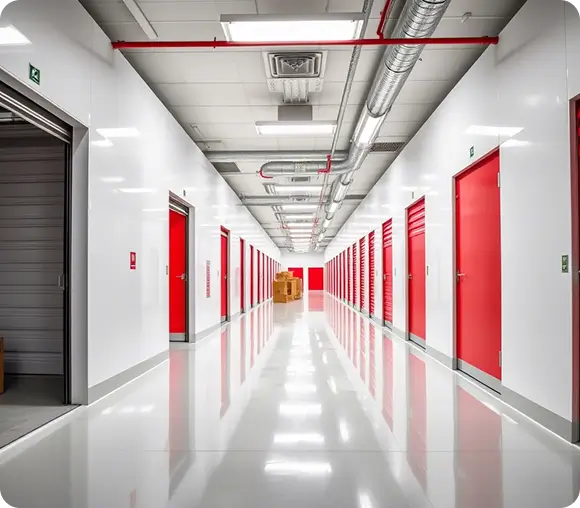
Why do travelers use self storage near airports?
Dubai is not only a tourism hotspot but also one of the busiest transit hubs in the world. Millions of passengers pass through Dubai International Airport (DXB) and Al Maktoum International Airport (DWC) every year, and many need convenient storage solutions. For travelers, self storage near Dubai airports provides flexibility, cost savings, and security.
With 92 million passengers at DXB in 2024 alone, the demand for short-term luggage storage continues to rise. Expats, tourists, and business professionals use storage near airports for a variety of reasons.
Main reasons travelers use airport self storage
Layovers and stopovers
- Many passengers spend 8–24 hours in Dubai between connecting flights.
- Instead of carrying heavy bags, they store luggage in facilities near DXB or DWC to explore the city freely.
- DXB connects to 230+ global destinations, so stopover storage is in constant demand.
Avoiding excess baggage fees
- Airlines like Emirates charge $50–100 per extra bag, depending on the route.
- Travelers often find it cheaper to store non-essential items short-term than to pay for extra baggage.
- Storage near airports in Dubai offers flexible daily rates, saving money for frequent flyers.
Relocation and expat transitions
- With Dubai’s population being expatriates, relocations are common.
- Families moving homes often keep belongings in self storage near DXB while waiting for housing contracts to finalize.
- Expats returning temporarily to their home country also store items safely near airports.
Business and tourism convenience
- Business travelers attending conferences at the Dubai World Trade Centre often use short-term storage near DXB for laptops and equipment.
- Tourists visiting attractions like Burj Khalifa or Dubai Mall prefer to leave bags in secure airport-adjacent facilities.
- Many self storage units offer 24/7 access, CCTV, and climate control, ensuring safe storage of electronics, documents, and valuables.
Benefits travelers gain from self storage near airports
- Mobility: Move around the city luggage-free.
- Cost savings: Avoid high airline baggage surcharges.
- Security: Belongings protected with surveillance and controlled access.
- Flexibility: Storage options range from a few hours to several months.
What are the major industrial estates in Dubai, and how large are they?
Dubai has built its reputation as a global logistics hub not just on aviation but also on strategically developed industrial estates. These areas serve as the backbone of trade, manufacturing, and warehousing in the emirate. For businesses and SMEs, access to self storage in Dubai’s industrial zones is vital for managing overflow goods, documents, and logistics staging.
From large-scale free zones to city-center industrial districts, Dubai’s estates are designed to accommodate global corporations and local enterprises alike. Knowing their size and scale is crucial for understanding storage demand.
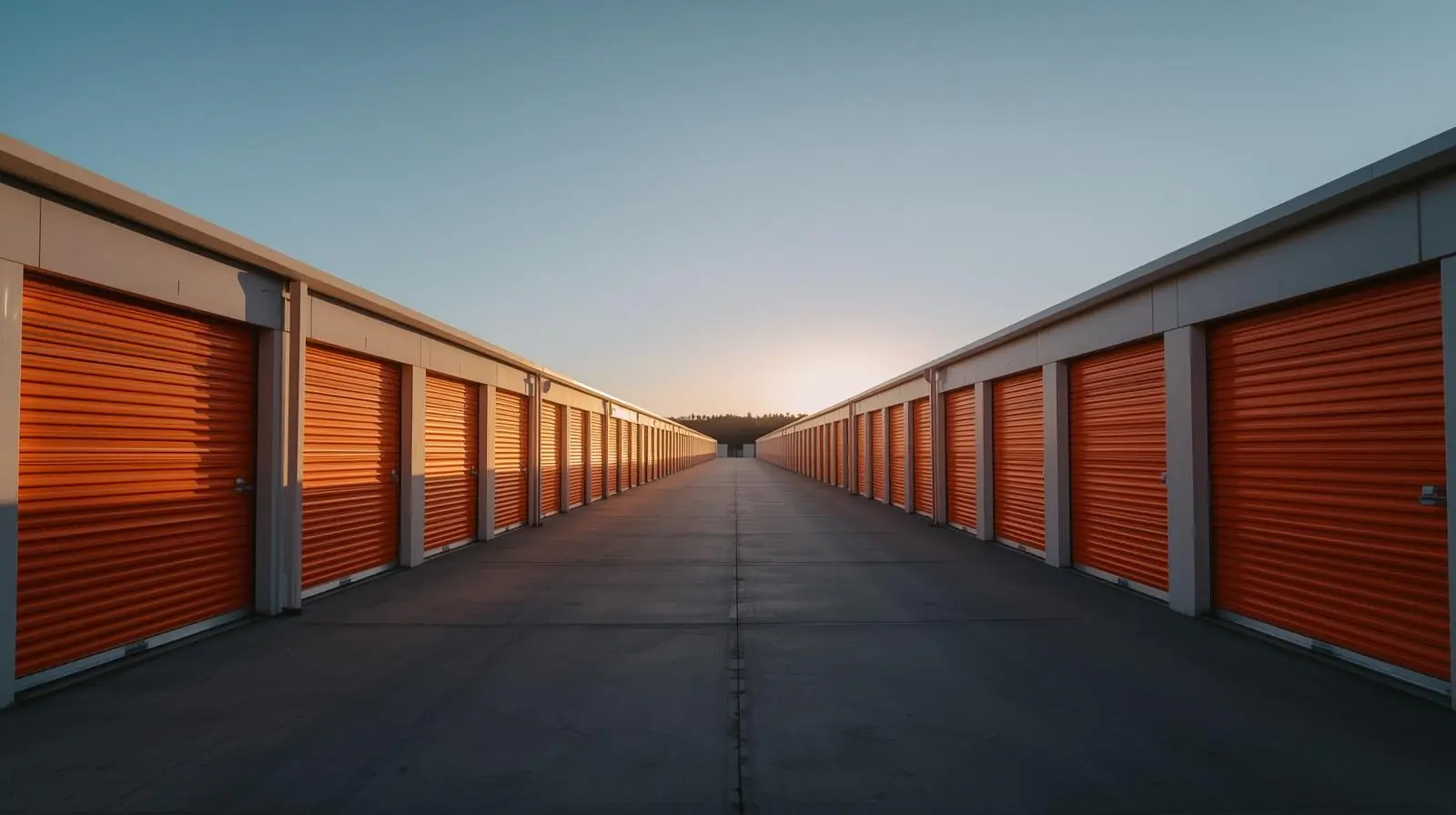
Jebel Ali Free Zone (JAFZA)
- Established in 1985, Jebel Ali Free Zone (Jafza) is DP World’s flagship free zone and the largest customs bonded zone in the Middle East.
- Jafza currently hosts 10,890 companies from 150 countries, supporting over 160,000 jobs and contributing AED 620 billion in trade annually.
- Jafza supports the employment of over 160,000 people within the free zone, across a wide range of industries.
- Today, Jafza attracts nearly 75% of Dubai’s foreign direct investment (FDI) in the manufacturing, trade, and transport sectors.
- A total space of 3.85 million sqm of combined facilities, 92,100 sqm of warehouse space, 2,300 sqm of office space, and Jafza’s proximity to the Port of Jebel Ali have collectively helped place the logistics industry at the top across Jafza and the UAE, as well.
Dubai Industrial City (DIC)
- Located near Al Maktoum International Airport (DWC) and Jebel Ali Port, forming part of the Dubai South masterplan.
- Dubai Industrial City is a dedicated industrial park in Dubai, United Arab Emirates, founded in 2004, covering an area of 560 million Sq ft..
- Dubai Industrial City is growing as it attracts an increasing number of global manufacturers, with 13.9 million sq ft. of industrial land added this year alone. Over the past two years, Dubai Industrial City has attracted over AED2 billion in private sector investment.
- Many SMEs use self storage near DIC for seasonal inventory before goods are shipped through DWC.
Al Quoz Industrial Area
- Centrally located, divided into four sub-zones (Al Quoz 1–4).
- Known for manufacturing workshops, showrooms, small factories, and logistics firms.
- Popular among SMEs and startups for its proximity to Dubai’s downtown.
- Many businesses and residents choose self storage in Al Quoz to reduce high warehouse costs.
- Growing demand comes from e-commerce firms staging deliveries to nearby neighborhoods.

Dubai Investments Park (DIP)
- Dubai Investments Park (DIP) covers 2,300 hectares of industrial, commercial, and residential land.
- Strategically located between JAFZA and DWC, offering direct highway connectivity.
- Host companies in the construction, logistics, food, and automotive sectors.
- Attracts firms looking for self storage near DIP to manage short-term goods staging for last-mile deliveries.
Why industrial estates matter for storage demand
- Trade scale: JAFZA contributes about 24% of the total FDI flow into Dubai, and ensures global connectivity for companies, thanks to its location next to Jebel Ali Port and its proximity to Al Maktoum International Airport and Dubai International Airport..
- Geographic advantage: DIC and DIP are close to airports and ports, creating storage demand in logistics corridors.
- Urban access: Al Quoz offers storage for businesses needing central locations.
How do industrial estates drive demand for self storage?
Dubai’s industrial estates are not only production and trade hubs, they are also catalysts for demand in the self storage market. Companies in areas like Jebel Ali Free Zone (JAFZA), Dubai Industrial City (DIC), Al Quoz, and Dubai Investments Park (DIP) often require additional storage capacity to handle fluctuations in trade, legal compliance, and seasonal demand.
By combining large-scale trade operations with flexible storage solutions, industrial estates create a constant need for self storage in Dubai. Businesses that cannot afford long-term warehousing or need extra capacity for overflow rely heavily on these services.
Overflow storage for seasonal demand
- Jafza currently hosts 10,890 companies from 150 countries, supporting over 160,000 jobs and contributing AED 620 billion in trade annually, creating situations where warehouse space is insufficient.
- Retailers and distributors use self storage near Jebel Ali during high-demand periods such as Ramadan and year-end shopping seasons.
- Storage facilities allow companies to stock additional inventory without over-investing in permanent warehouses.
Compliance and record-keeping
- UAE tax law requires companies to retain accounting and VAT-related documents for at least 5 years, and in some cases 15 years.
- Firms in industrial estates often outsource this need to secure self storage in Dubai, where climate-controlled units protect sensitive archives.
- Construction companies in Al Quoz and logistics firms in DIC are among the main users of such document storage.
Logistics staging and last-mile delivery
- E-commerce and retail businesses increasingly adopt just-in-time delivery models.
- SMEs in Dubai Industrial City and DIP use self storage facilities as staging points before distributing goods across Dubai.
- Storage units near DWC and JAFZA provide cost-effective micro-warehousing solutions for cross-docking and package preparation.
Cost efficiency for SMEs and startups
- Warehouse lease rates in Dubai can cost AED 25–35 per sqm per month in prime industrial zones.
- By contrast, self storage near industrial zones allows companies to rent smaller units only when needed.
- Startups and seasonal businesses benefit most, as they can scale storage up or down depending on market conditions.
Why does this drive consistent demand
- Large corporations use storage to handle overflow and archives.
- SMEs use storage for cost savings and logistics flexibility.
- E-commerce firms depend on storage for last-mile delivery support.
Industrial estates act as engines of demand by linking Dubai’s global trade flows directly to self storage solutions, making them a critical part of the city’s logistics ecosystem.
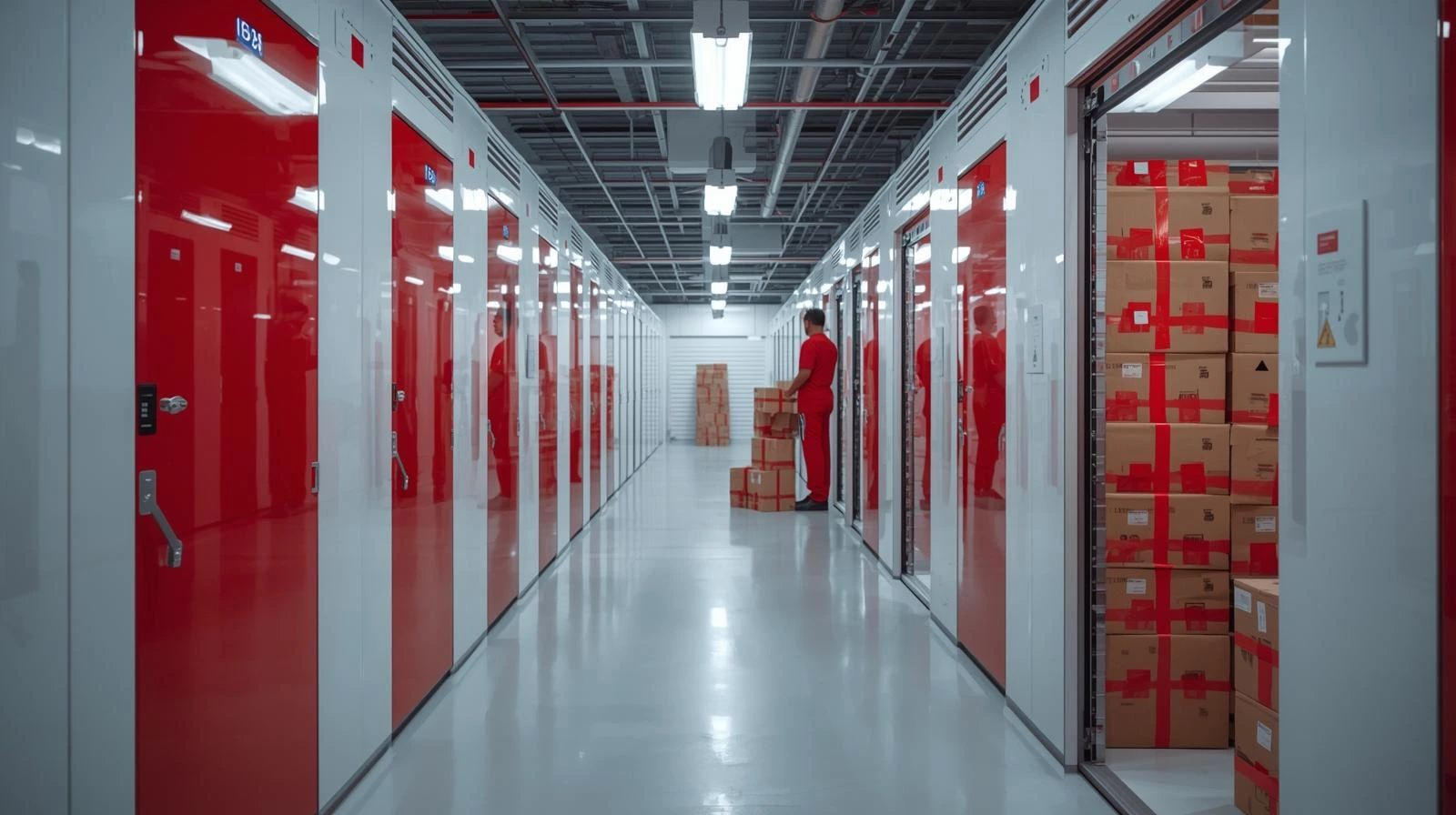
Where are self storage facilities located near Dubai airports and industrial zones?
The placement of self storage facilities in Dubai is not random; they are strategically clustered near airports and industrial estates to serve both travelers and businesses. Proximity to these hubs ensures lower logistics costs, faster access, and greater convenience for passengers, expats, and companies alike.
Dubai’s storage market follows the city’s infrastructure map: close to DXB, DWC, JAFZA, Al Quoz, and DIP, where demand is highest.
Near Dubai International Airport (DXB)
- Facilities in Al Garhoud, Al Qusais, and Dubai Airport Free Zone (DAFZA) serve transit passengers and airline staff.
- Storage near DXB is used for short-term luggage storage, event equipment, and expat relocation belongings.
Near Al Maktoum International Airport (DWC)
- Dubai South and Dubai Investments Park (DIP) host multiple storage providers.
- Businesses in Dubai Industrial City (DIC) use nearby storage for inventory staging and e-commerce logistics.
Near Jebel Ali Free Zone (JAFZA)
- Self storage providers operate around Jebel Ali, serving over 10,890 companies based in the free zone.
- Facilities are commonly used for cargo holding, pre-customs staging, and seasonal goods overflow.
- Proximity to Jebel Ali Port ensures low-cost integration of sea-air cargo supply chains.
In Al Quoz Industrial Area
- Centrally located storage hubs serve both residents and SMEs.
- Popular among e-commerce sellers who need micro-warehousing close to downtown Dubai.
- Many facilities in Al Quoz offer flexible unit sizes, attracting startups and individuals.
In Dubai Investments Park (DIP)
- Positioned between JAFZA and DWC, DIP is a hotspot for storage use.
- Businesses here use self storage in DIP for last-mile delivery staging.
- The area’s mixed-use zoning also means expats and households use storage during housing transitions.
Proximity benefits of storage near airports and estates
- Time savings: Storage within 10–15 minutes of DXB means quick luggage drop-off before exploring the city.
- Lower logistics costs: Businesses reduce fuel and transport costs by using storage near JAFZA or DWC.
- Flexibility: Both short-term and long-term units are available to match the diverse needs of travelers, SMEs, and corporates.
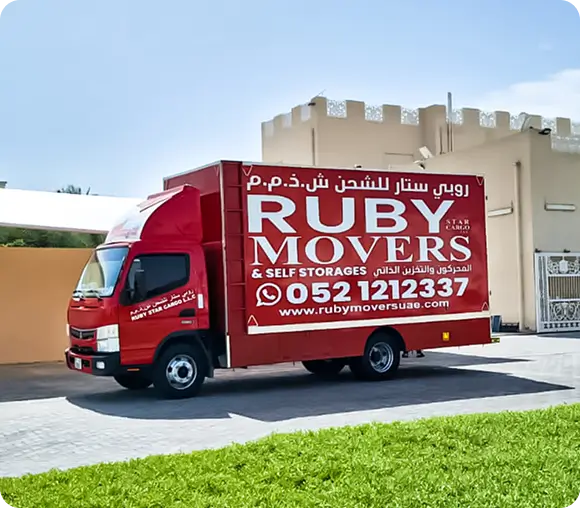
What are the benefits of self storage for passengers and businesses in Dubai?
Dubai’s airports and industrial estates create unique storage demands. Passengers rely on self storage near Dubai airports for convenience, while companies in zones like JAFZA, DIP, and Al Quoz use it to optimize operations. The benefits extend beyond simple space rental; they include cost efficiency, security, and scalability.
Benefits for Passengers
Self storage near DXB and DWC provides multiple advantages:
Save money
- Airport-adjacent storage often costs less, especially for short-term needs.
Travel light
- Passengers on layovers store luggage to visit attractions like Burj Khalifa or Dubai Mall without hassle.
Secure belongings
- Storage facilities near airports offer 24/7 CCTV, climate control, and fire detection systems.
- Ideal for storing electronics, valuables, and travel documents.
Flexible access
- Units are available by the hour, day, or month.
- This flexibility supports tourists, expats in transition, and business travelers.
Benefits for Businesses in Industrial Estates
Companies in JAFZA, DIC, Al Quoz, and DIP rely on self storage to manage operations efficiently:
Inventory overflow management
- Businesses move goods into self storage near JAFZA or DIP to handle demand without long-term warehouse costs.
Regulatory compliance
- Companies use climate-controlled storage for secure archiving.
E-commerce and logistics support
- Units act as micro-warehouses, helping with last-mile delivery.
Cost efficiency and scalability
- Self storage in Dubai allows businesses to rent only what they need, scaling up or down easily.
Why this matters for Dubai
- Passengers gain mobility and avoid costly airline surcharges.
- Businesses lower overheads and gain flexibility.
- E-commerce firms use storage as part of their delivery network.
Together, these benefits show why self storage near Dubai airports and industrial estates has become a critical part of the city’s infrastructure.

How does self storage support Dubai’s role as a global hub?
Dubai is not just a city; it is a strategic global hub for trade, travel, and logistics. Its world-class airports, seaports, and industrial estates position it as a gateway between East and West. But beneath this large-scale infrastructure, self storage in Dubai plays an often-overlooked role: it supports travelers, expatriates, SMEs, and multinational corporations by providing flexible and cost-efficient storage options.
Integration with Airports
- Passenger hub: DXB is the busiest airport for international travelers. Self storage near DXB allows passengers to store luggage during long layovers or short city visits safely.
- Cargo hub: Storage near DWC supports cargo staging and logistics, especially for companies in Dubai South.
- Link to storage demand: With millions of passengers and tonnes of cargo, airports naturally drive demand for short-term and long-term self storage in Dubai.
Support for Industrial Estates
- JAFZA’s trade scale: JAFZA requires flexible storage solutions for inventory overflow and compliance archiving.
- DIC and DIP logistics: Both estates are near DWC, making self storage in Dubai South ideal for micro-warehousing and e-commerce logistics.
- Al Quoz for SMEs: Central businesses use storage in Al Quoz to keep costs low while remaining close to urban customers.
Boosting E-commerce and Last-Mile Delivery
- The warehousing market in the UAE is expected to reach a projected revenue of US$34.2 billion by 2030. A compound annual growth rate of 7.8% is expected.
- E-commerce retailers increasingly use self storage facilities to stage goods closer to customers.
- Storage units function as micro-distribution hubs, reducing last-mile delivery costs and delivery times.
Economic Diversification and SME Growth
- Self storage supports SMEs and startups that cannot afford long-term warehouse leases.
- By reducing operational overhead, self storage in Dubai contributes to economic diversification and supports entrepreneurial growth.
Why self storage is critical to Dubai’s hub status
- For passengers: Ensures smooth travel experiences with secure, short-term storage.
- For businesses: Provides flexible, scalable, and cost-efficient storage near ports and airports.
- For Dubai: Strengthens its logistics ecosystem, making the city more competitive on a global scale.
In short, self storage is an unseen but essential part of Dubai’s identity as a world-class trade and travel hub.
Final Thoughts: Why Self Storage is Vital for Dubai’s Airports and Industrial Estates
Dubai’s success as a global hub for aviation and trade is built on its ability to integrate airports, ports, and industrial estates into one connected ecosystem. But behind this large-scale infrastructure lies an equally important enabler: self storage in Dubai. For passengers, expatriates, and businesses, storage facilities are not just about space; they are about flexibility, cost savings, and operational efficiency.
Key takeaways:
For passengers:
- Storage near Dubai International Airport (DXB) and Al Maktoum International Airport (DWC) helps travelers avoid baggage fees, move freely during layovers, and keep valuables secure.
For businesses:
- Companies in JAFZA, Dubai Industrial City, Al Quoz, and DIP use self storage to manage seasonal overflow, archive records, and stage goods for e-commerce and logistics.
For Dubai’s economy:
- Self storage supports SMEs, startups, and global firms, making logistics more efficient and affordable.
Frequently Asked Questions (FAQs)
How much does self storage in Dubai cost?
Self storage in Dubai typically costs AED 20–30 per sqm per month for long-term units.
Can passengers store luggage near Dubai International Airport (DXB)?
Yes, passengers can use short-term self storage near DXB for hourly, daily, or monthly luggage storage.
Is there storage available near Al Maktoum International Airport (DWC)?
Yes, self storage near DWC is available in Dubai South and DIP, supporting both travelers and cargo operators.
Are storage units in Dubai secure?
Yes, most self storage facilities in Dubai offer 24/7 CCTV, gated access, fire systems, and climate control.
Do businesses in JAFZA use self storage?
Yes, companies in Jebel Ali Free Zone (JAFZA) use storage for inventory overflow, archives, and logistics staging.
Can expatriates use self storage during relocation?
Yes, expats often use self storage in Dubai to keep belongings safe during housing transitions or travel.
What is the main benefit of self storage for travelers?
The main benefit is avoiding airline baggage fees while exploring Dubai luggage-free.
What industries use storage in Dubai Industrial City (DIC)?
Food, construction, logistics, and manufacturing companies in DIC use self storage for overflow and seasonal goods.
How does self storage help e-commerce in Dubai?
Self storage acts as micro-warehousing, supporting last-mile delivery and reducing logistics costs.
Is self storage in Dubai flexible for small businesses?
Yes, SMEs benefit from scalable self storage, paying only for the space they need without long-term leases.
Rakan Al-Juraid is a logistics specialist with a focus on commercial storage systems and high-security asset management. With extensive experience in industrial warehousing, he specializes in inventory tracking technology and transit safety. Rakan’s expertise lies in streamlining the storage process for both businesses and homeowners through strategic planning. His writing offers data-driven advice on insurance for stored goods, fire-safe environments, and heavy-duty logistics. He is committed to ensuring that every square foot of storage is utilized with maximum security and efficiency. Rakan aims to provide professional-grade storage standards to every reader navigating the moving process.
Layali Al-Samer is a seasoned storage and organization expert with over 12 years of experience in the logistics industry. She holds a degree in Spatial Design, specializing in high-density residential storage and climate-control solutions. Layali focuses on inventory management for luxury goods and long-term preservation techniques for sensitive heirlooms. Her articles provide expert guidance on maximizing unit efficiency and protecting valuables from environmental damage. She is dedicated to helping readers declutter their lives through strategic and organized spatial planning. Layali’s goal is to ensure every possession is stored with the highest level of care and precision.
- This author does not have any more posts


